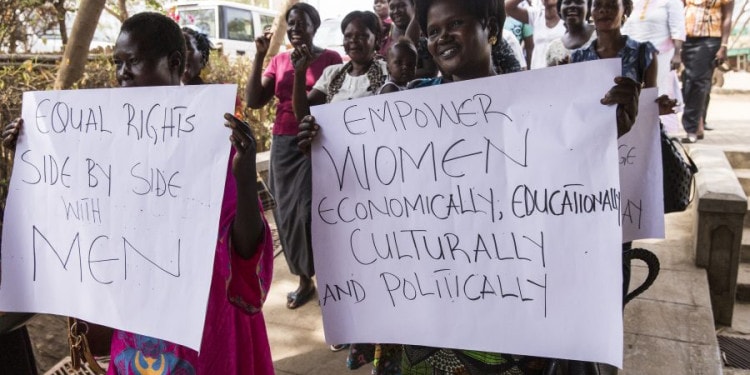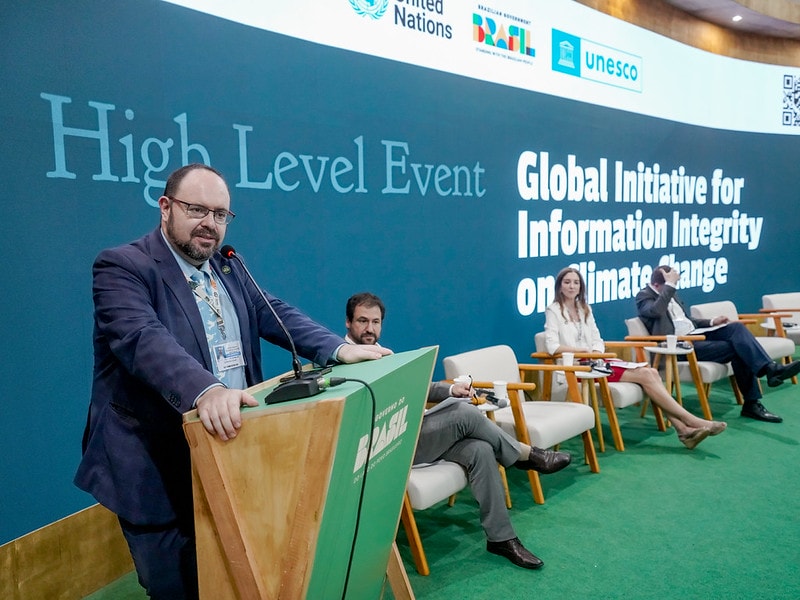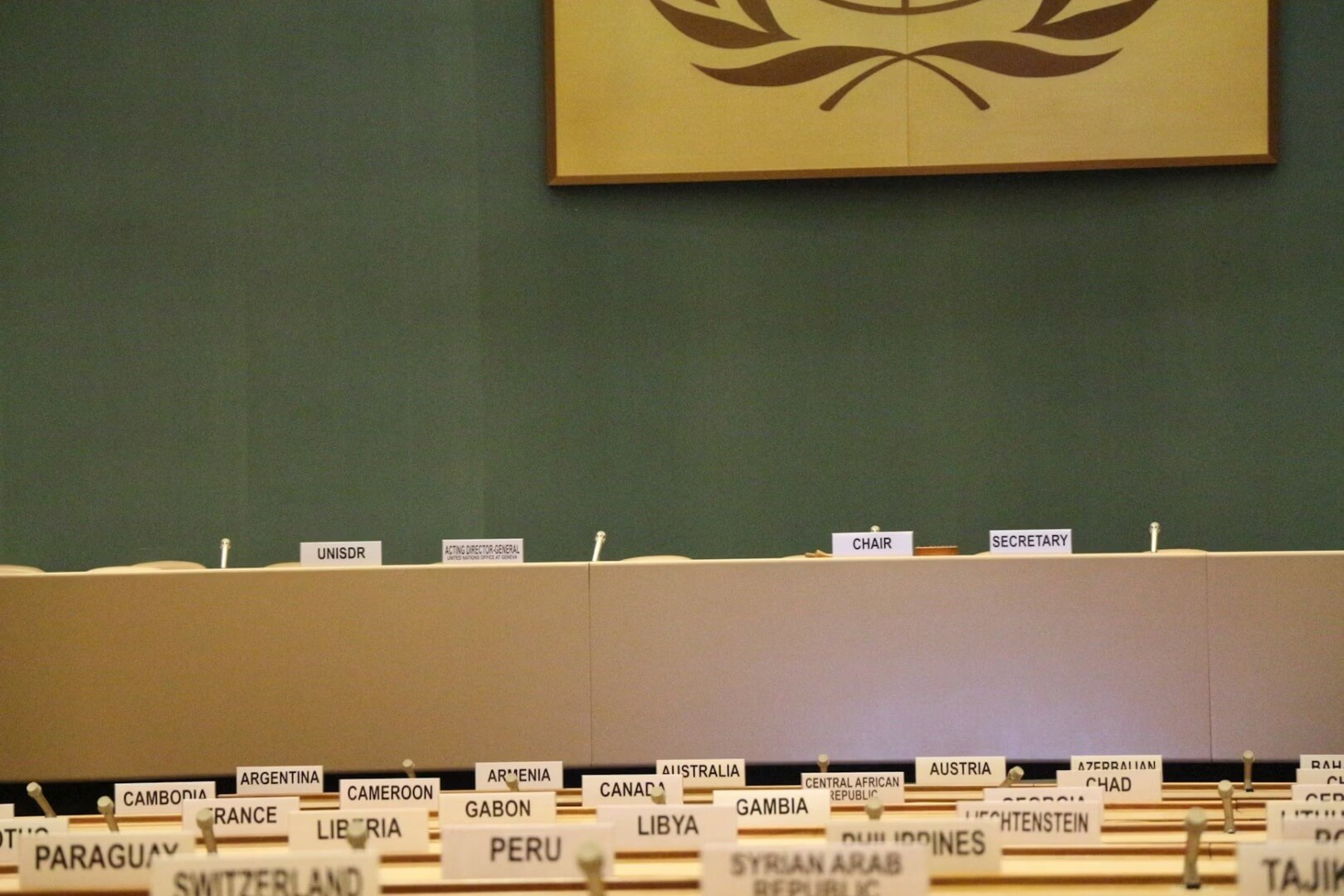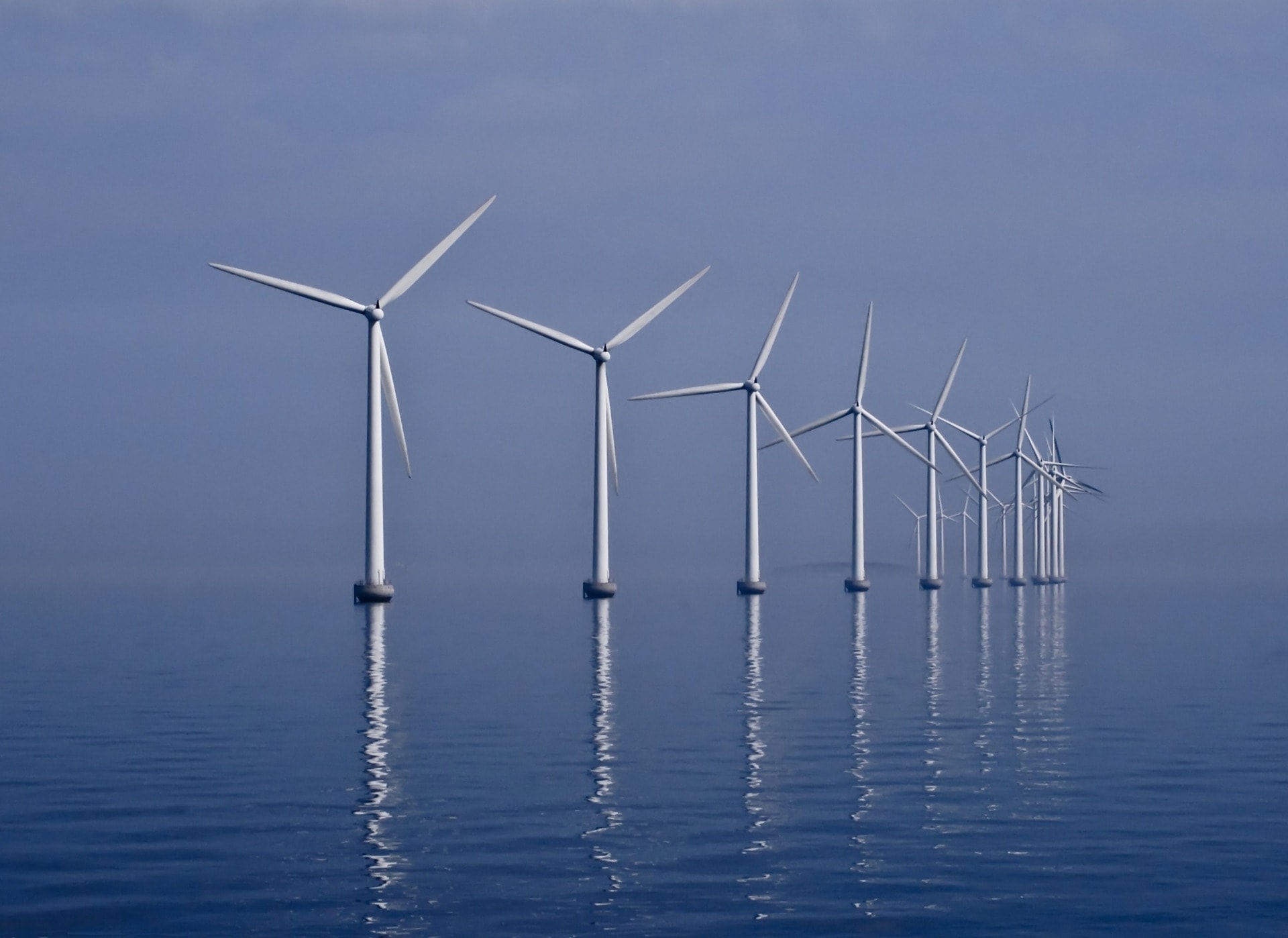From Leonardo DiCaprio’s 2016 Oscar acceptance speech on climate change, to Vivienne Westwood’s Climate Revolution Charter, to Will.i.am’s partnership with Coca-Cola to promoting recycling to a younger audience, sustainability has become a global buzzword. But what does it mean? Wu Hongbo of United Nations’ Department of Economic and Social Affairs put it this way:
If all of the world’s people lived like people in the developed countries do, then we would need three or four different globes to support the demand in terms of natural resources. So, sustainability is the word for the whole world.
Women and girls are important solution makers and game changers in this global hope for sustainable development. However, as we know all too well, women and girls around the world still experience many different aspects of inequality – and those issues need to be resolved before solutions can be made irreversible. That is at the heart of the vision of sustainability set out in the 2030 Agenda for Sustainable Development.
Women are the majority of those living on less than two dollars a day, and in some regions, account for 81 percent of those unemployed. Where they do earn a wage, women are paid an average of 24 percent less than their male counterparts for the same work. In a study of over 60 countries, despite an increase in women and girls’ education, and further access to employment opportunities, neither of these improvements have translated into higher or equal compensation. Harmful practices such as Female Genital Mutilation (FGM) continue to impact at least 200 million girls and women in 30 countries, and the continuation of child, early and forced marriages are expected to affect more than 140 million girls between 2011 and 2020. Women are disproportionally affected by insecurity and violence, with one in three experiencing violence in her lifetime globally. Yet these facts do not define women and girls. They are the barriers that we are resolved to crack – and that the new 2030 Agenda for Sustainable Development resoundingly names for change.
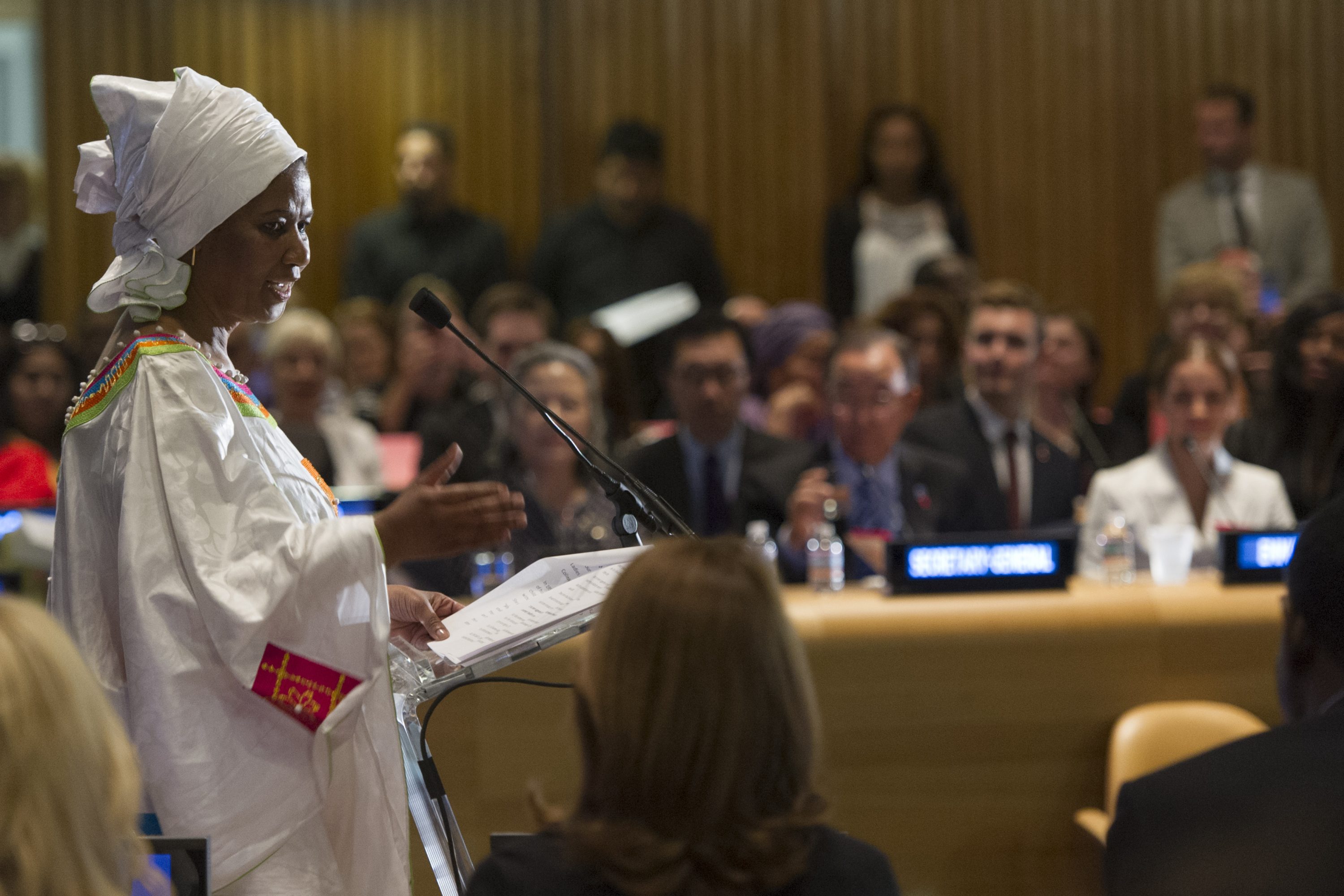
The 2030 Agenda for Sustainable Development
In September 2015, the countries that make up the UN Member States adopted the 2030 Agenda and its 17 Sustainable Development Goals (SDGs). The SDGs are universal; the issues they address affect both developing and developed countries, women and men, young and old. Common to the whole Agenda is the emphasis on “leaving no one behind,” directing our attention to those who have least and whose voices are not heard.
The new goals for 2030 go a step further than the Millennium Development Goals (MDGs) to provide a broader, more complete view on how to tackle the current barriers so as to be able to achieve a sustainable and peaceful planet for everyone. The 2030 Agenda aims to complete the “unfinished business” of the MDGs by addressing the underlying causes of poverty and inequality. They take into account that many of these issues are intrinsically linked, and the achievement or blockage on one has an impact on one another. For example, Goal 4 is dedicated to providing quality education for all. We know that a solid education leads to decent work and reliable income, which facilitates economic growth – the focus of Goal 8. In providing people with the means to secure an income, poverty is reduced – the focus of Goal 1.
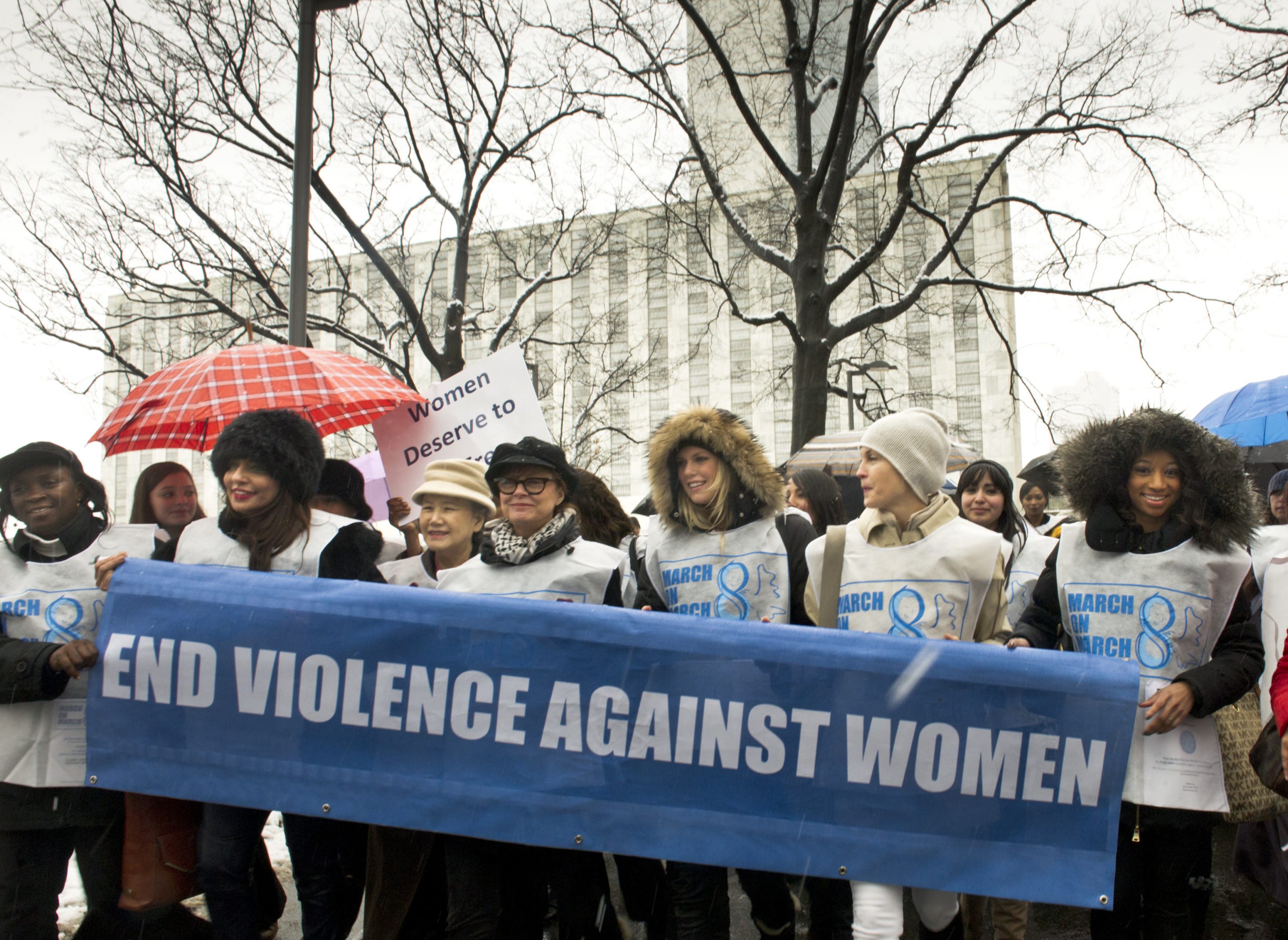
Goal 5, on achieving gender equality and the empowerment of women and girls, moves this topic from being a “women’s issue” to its rightful place as a human rights problem that impacts us all. As the goals are interlinked, almost all of them have an impact on gender equality – and vice versa. For example, Goal 8 which is about promoting decent work and economic growth, includes a target to, “achieve full and productive employment and decent work for all women and men, including for young people and persons with disabilities, and equal pay for work of equal value” by 2030 (Target 8.5).
Agenda 2030 has set a clear expiry date for gender inequality: At UN Women we call it Planet 50-50 by 2030. Our work now is firmly focused on implementation of the Agenda so that we can meet this ambitious goal. This means going beyond our traditional allies and reaching out to engage new groups of people, including young people, faith-based groups, and men and boys. After all, the struggle for women’s empowerment has been carried on for so many years by the women’s movement.
A view of this as everyone’s struggle crucially changes “outsiders” like men and boys into allies in an effort to improve the world for all of us. This adjustment was a fundamental shift in approach, and lies behind the ground-breaking HeForShe campaign, as well as the broader work on engaging men, and thinking carefully about how redefined masculinity is a part of the positive changes in power relations.
In 2016, at the 60th Commission on the Status of Women (CSW), UN Women launched a Youth and Gender Equality Strategy. This is an effort to empower young women and develop young men as partners in achieving gender equality and recognizing women’s rights. We also hosted the first-ever Youth CSW Forum, which opened up a space for young people, particularly women and girls, to discuss their concerns candidly and to construct their own version of official conclusions, which was then shared with the main forum.
UN Women is also working with partners on projects such as a joint programme with UNESCO and UNFPA on education for adolescent girls and young women, and with the Girl Guiding movement on a programme “Voices against Violence”. We will continue to engage girls, boys and youth through our signature campaigns including EmpowerWomen and HeForShe.
Boosting learning via EmpowerWomen
As they advance in the workplace, the Agenda 2030 generation can exert a strong influence in the labour market. UN Women’s EmpowerWomen Platform has a mission to enable women to achieve their full economic potential by inspiring both women and men to become advocates, change makers and leaders in their community. Through the global platform, visitors are equipped with resources and opportunities that facilitate networking, learning and sharing of experiences, for example, webinars on negotiations, confidence, change making, and job preparedness.
Later this year, EmpowerWomen will launch a dedicated space for young women entrepreneurs and a Virtual School for 21st Century Skills, focusing on girls and young women.
Engaging men and boys through HeForShe
Our HeForShe campaign, which launched in September of 2014, recognizes that a more equal world benefits all of us, and for the world to make real progress on gender equality, we need women and men to work together.
Through the HeForShe IMPACT 10x10x10 campaign, we are partnering with heads of state, CEOs, and university leaders to generate gender equality commitments across a range of key institutions. Our ten University IMPACT Champions come from around the world: Brazil, Canada, France, Hong Kong, Japan, South Africa, UK and USA. At the University of Waterloo, one of the commitments is to increase STEM enrollment to 33% by 2020. Oxford University commitments include achieving one-third representation of women across all university senior leadership roles by 2020 and addressing campus violence, the University of Hong Kong has committed to developing a new gender sensitization curriculum to educate students and staff on unconscious bias and other subversive forms of gender harm, reaching all faculty members and students by 2021.
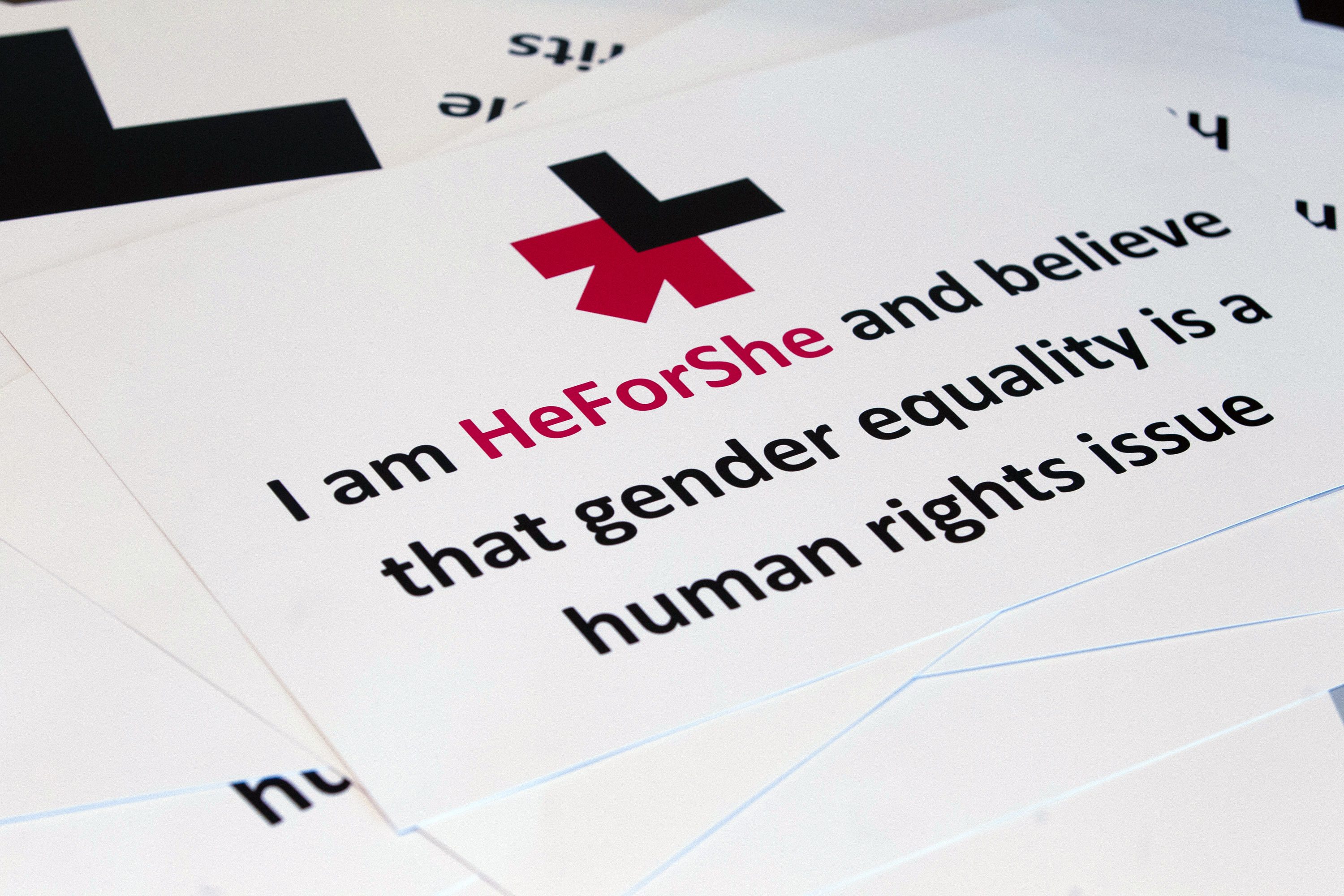
We are also seeing university students working from the ground up to institutionalize gender equality on their campuses. Since the launch of HeForShe, over 200 HeForShe Student Associations have emerged in universities around the world, and last year we launched our HeForShe GetFree University Tour, which visited six universities in the UK and France, reaching some 110,000 students. Today, more women are attending college than ever before, but they remain underrepresented in science and engineering. And despite an increased focus on campus violence, sexual assault is still high.
But while campus experiences differ widely, we heard a consistent call for an inclusive, proactive gender equality movement across all institutions. This generation sees gender equality as a fundamental right, regardless of gender identity and expression. And while they believe we’re on the road to gender equality, they know we have a long way to go.
HeForShe supporters are determined generators of solutions for a gender equal world. We saw this in December 2015, at HeForShe’s inaugural Ideathon which was held in collaboration with Twitter and crowd-sourced solutions to resolve gender-based violence on university campuses. This has led to more requests for Ideathons at each stop on the GetFree University Tour, which in 2016, will extend to universities across Africa, the Middle East, South Asia, North America, and Latin America.
Engaging in Agenda 2030
With more than half the world’s population currently under the age of 30, millennials have the power to drive lasting change. But what can young people do personally to take action in their communities?
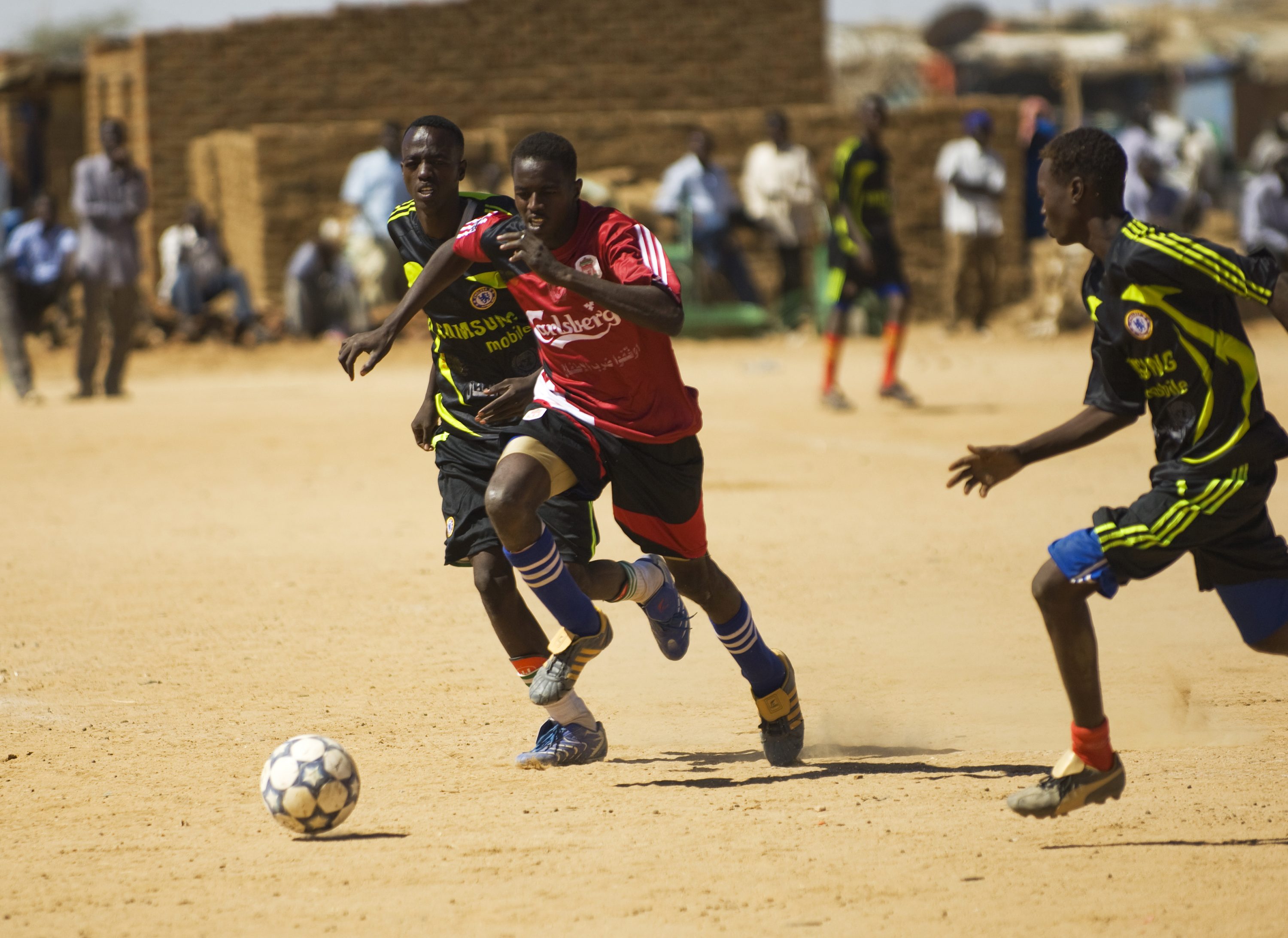
To start, anyone interested in making a difference can sign up for UN Women’s HeForShe campaign, they can take action in their peer groups, families and communities to stand up for gender equality and women’s empowerment, to call out gender-based violence and discrimination, and to promote ideas of positive masculinity. For example, just three days after signing the HeForShe pledge, one man decided to take action in protest against the information that some men had stripped and assaulted women simply because they were wearing a miniskirt. Erick Matsanza co-organized #MyDressMyChoice to help end the myth that a dress code should define women in Nairobi. He dressed in a skirt, posted the photo online and called for other men to do the same. At the protest, a lot of men wore skirts in solidarity.
Technology and social media provide powerful and far-reaching platforms for people to raise their voices, share ideas and influence larger groups than ever before in history – without having to “ask permission”. Youth voices are needed to generate conversations on gender equality and women’s empowerment and share stories on a variety of platforms. UN Women engaged in an innovative partnership for International Women’s Day this year with Snapchat, which through contributions from UN Women partners worldwide created a “Live Story” to highlight remarkable women from all walks of life to 100 million users.
While technology and social media has taken the global conversation to a level of involvement and interaction never seen before, it also brings with it many risks and challenges. Online harassment and bullying, and the unrealistic expectations perpetuated by social media has led some young people to depression and even suicide. UN Women is calling for technology companies to step it up to challenge practices of cyber violence and increase safety on online platforms.
There is also important scope to engage offline by partnering with civil society, women’s organizations and university peer working groups that tackle the thematic issues addressed in the Sustainable Development Goals such as sustainable living, consumption and production, LGBTQI rights, and social justice. It is important that young people use their growing influence in the workforce to advocate for policies that support parental leave, reducing and redistributing unpaid care work, and equal pay for equal work.
At the current pace, it will take another 118 years before we bridge the gender pay gap. This generation cannot afford to wait that long.
Agenda 2030 also explicitly recognizes sport as an important enabler for development and women’s empowerment. Sporting teams are a high impact space in which to tackle several critical aspects of the SDGs. Sports can foster self-esteem, facilitate social inclusion and provide women and girls new opportunities for leadership and achievement. UN Women works with The Valencia Club de Fútbol (CF) and the International Olympic Committee to promote women’s empowerment and advance gender equality through sports. The ongoing conversation about leadership roles, pay gaps, and the recognition that women in sports receive also touches on thematic areas in the SDGs.
Strong and vibrant youth movements will be key to translating the narrative of Agenda 2030 into reality and guiding us to Planet 50-50 over the next 15 years. We are living in a world facing conflict, economy instability, rising extremism and a worsening refugee crisis. We are seeing a wave of intolerance, fear and xenophobia that could have a marked impact on generations to come. This situation demands that we all respond with a unified assertion of the counter-narrative of peace, gender equality, sustainability and shared prosperity.
The Agenda 2030 generation have the power in their hands to implement the Agenda and the Sustainable Development Goals in their own lives and in their communities. It is a generation that has proven its resilience and innovation to face and resolve the challenges we have today. Gender equality and women’s empowerment in all aspects of sustainability will be a hallmark achievement – for us all.
Editor’s Note: The opinions expressed here by the authors are their own, not those of Impakter.com — In the Featured Photo: A protest in Stonehenge, Wiltshire. Photo Credits: Wikimedia Commons.


